Pictographs Teaching Resources
Introduce pictographs in your classroom with printable worksheets, matching activities and more for teaching this graphing concept in the primary classroom.
Explore editable resources you can easily differentiate for individual learners, plus maths center activities and engaging games to help students understand how to organise and interpret data.
This collection of Australian curriculum-aligned printable and digital resources has been created just for teachers by the teachers on the Teach Starter team. That means each resource has undergone an in-depth review before publication to ensure it's ready for the classroom and your students!
New to teaching this section of the maths curriculum? Read on for a guide to pictographs from our teacher team!
What Are Pictographs? A Kid-Friendly Definition
Let's start with a definition of pictographs that you can share with your students!
A pictograph is like a chart showing information using pictures instead of numbers. Each picture or symbol stands for something. You can use pictographs to understand numbers and data!
Here are some more key terms that your class will encounter as they launch into the world of pictographs.
Picture or Symbol
These are the visuals that represent the data being shown. For example, a picture of a pencil might represent the number of pencils a teacher has in a cup on their desk.
Key
There are plenty of meanings for the word key, but just one for this maths tool! In the context of graphing, a key is a legend or a list that explains what each picture or symbol represents. For example, if a pictograph was created to represent the number of school supplies owned by different students, the key might list a pencil symbol as representing one pencil, and a crayon symbol as representing a crayon.
Scale
Like the word key, there are a host of meanings for scale, but in terms of using these graphs in maths class, scale refers to the increments on the pictograph's axis. For example, a scale of 1 might represent one apple sold, while a scale of 5 might represent five apples sold.
5 Fun Pictograph Examples for Kids
Here are a few common examples of pictographs that can help your students get comfortable using graphs to organise data!
Weather Pictographs
Tying into your science lessons, weather pictographs are graphs that show different types of weather conditions, such as sun, rain, clouds or snowflakes. Budding scientists can use these to track the weather over time or to compare weather in different locations.
Sport Pictographs
Track the most popular sport among students in the classroom with a sport pictograph! These show different types of sport equipment or actions, such as a soccer ball or a running person.
Food Pictographs
Talking about healthy eating or comparing students' favourite foods in the classroom? Food pictographs are perfect for showing different types of foods or food groups, such as a picture of an apple for fruit or a picture of a hamburger for fast food.
Animal Pictographs
Are you talking about different types of animals or animal characteristics? Use an animal graph with a picture of a lion for 'big cat,' or a picture of a snake for 'slithery animal.'
Transportation Pictographs
How do different students in your class get to school? Organise the data with a transportation graph that shows different types of vehicles or modes of transportation, such as a picture of a car, bus, bike or a person walking!
- Plus Plan
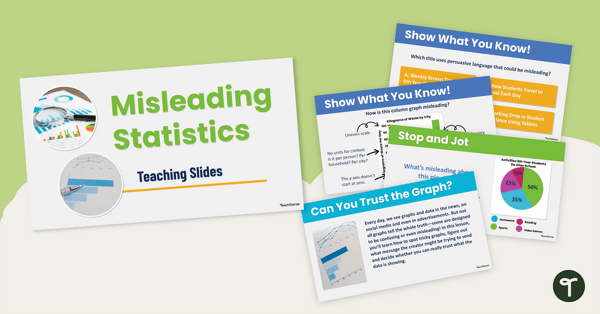
Misleading Statistics Teaching Slides
Use our misleading statistics teaching slides to increase statistical literacy and teach your students how to look at data displays with a critical eye.
- Plus Plan
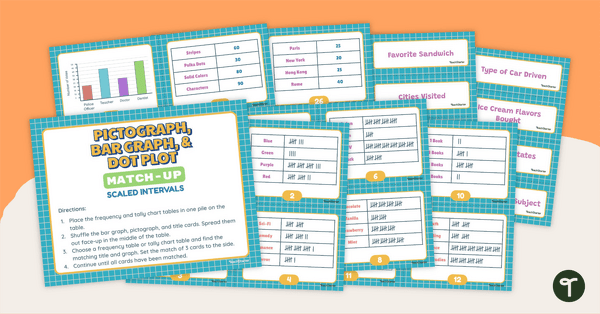
Pictograph, Bar Graph, and Dot Plot Match-Up (Scaled Intervals)
Use data analysis skills to match tally charts and frequency tables with their corresponding bar graph, pictograph, or dot plot.
- Plus Plan
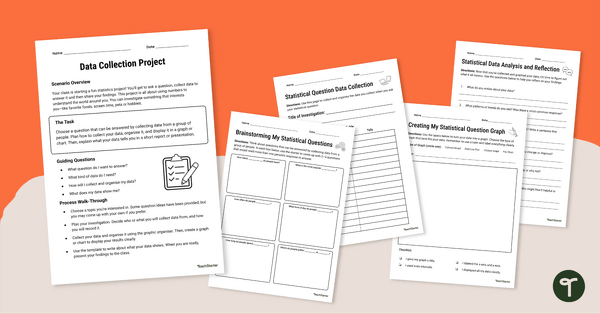
Data Collection Project
Complete this data collection project with your students to give them practise developing a statistical question, collecting data and displaying the results.
- Plus Plan
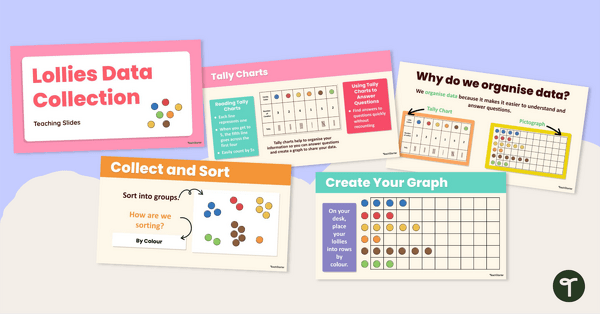
Lollies Data Collection Instructional Slide Deck
Explore this sweet-themed data collection teaching presentation to teach students the basics of recording data and creating a pictograph.
- Plus Plan
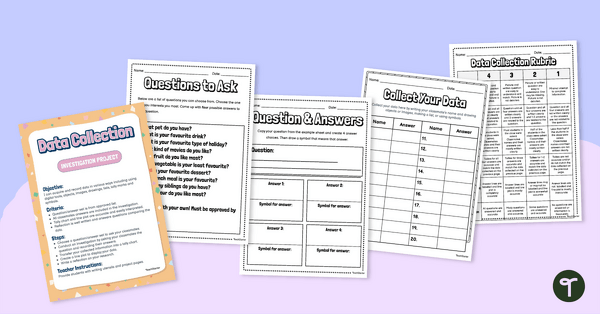
Data Collection Investigation Project
Assign this data collection project to enable students to master the skills of acquiring and recording data.
- Plus Plan
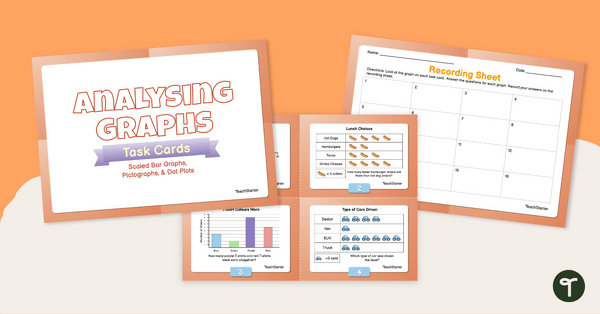
Analysing Graphs — Scaled Bar Graphs, Pictographs, & Dot Plots —Task Cards
Use data analysis skills to analyse scaled bar graphs, pictographs, and dot plots with this set of task cards.
- Plus Plan
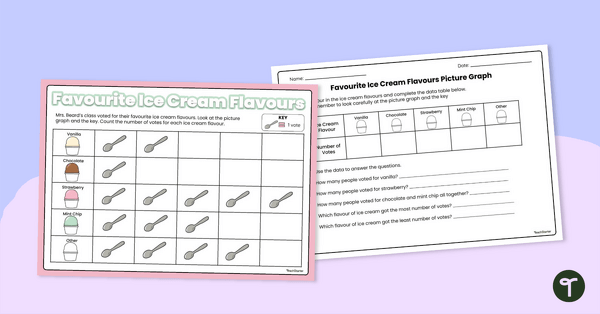
Picture Graphs Worksheet
Use this double-sided worksheet to help your students practise reading and evaluating a simple picture graph.
- Plus Plan
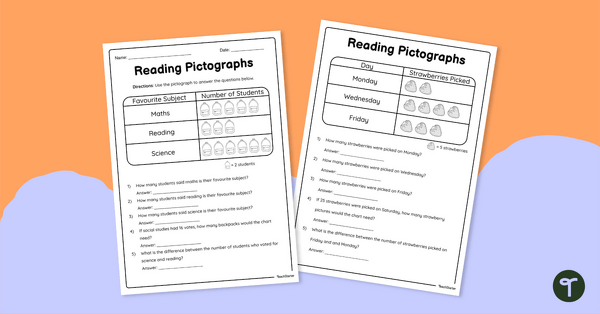
Reading Pictographs - Worksheets
Use this double-sided worksheet to enable students to practise reading and interpreting pictographs.
- Plus Plan
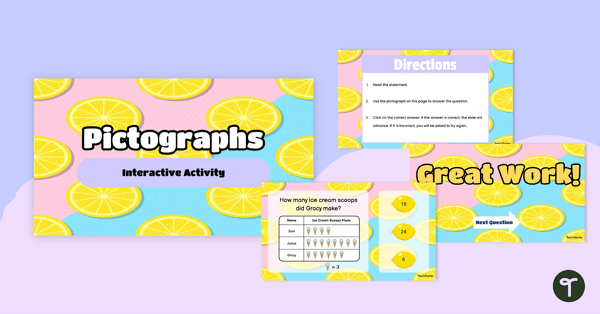
Pictographs - Interactive Activity
Use this fun and engaging interactive activity to aid students. in practicing their pictograph interpretation skills.
- Plus Plan
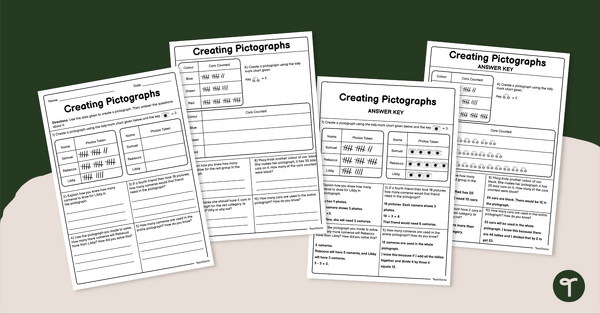
Creating Pictographs Worksheet
Use this engaging worksheet to practice creating and reading pictographs.
- Plus Plan
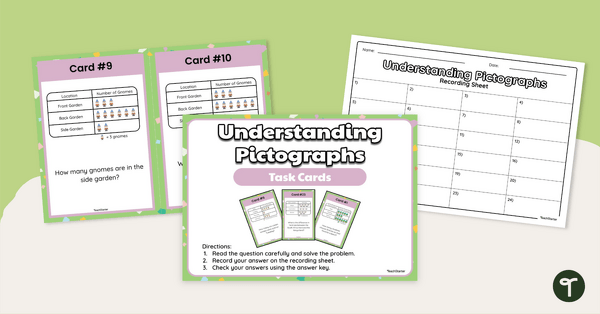
Understanding Pictographs - Task Cards
Use this set of task cards to practise reading and interpreting pictographs and bar graphs
- Plus Plan
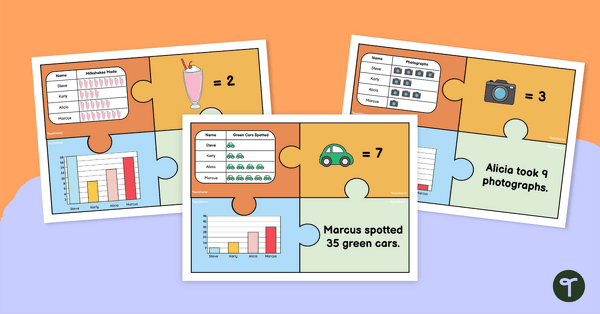
Pictograph Puzzles
Practise reading and interpreting pictographs with these fun puzzles which require students to match pictographs with other data displays with matching data.
- Plus Plan
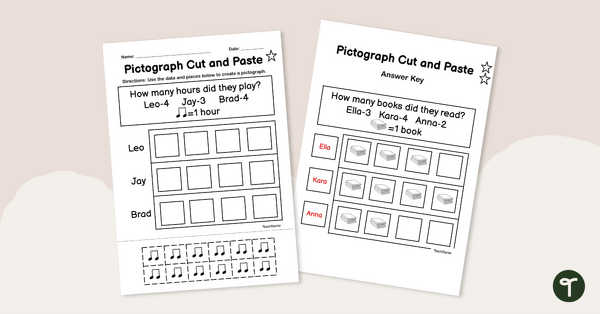
Pictograph Cut and Paste Worksheet
Use this fun cut-and-paste worksheet to consolidate student understanding of pictographs, and encourage them to practise their fine motor skills.
- Plus Plan
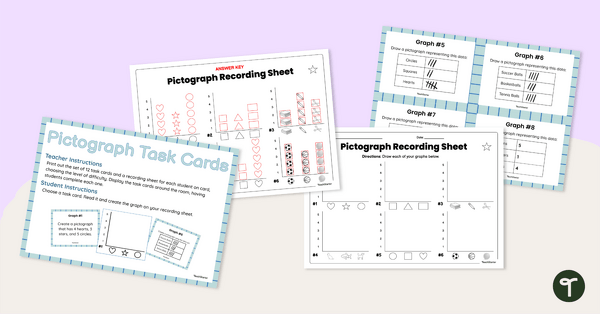
Graphing (Pictographs) Task Cards
Get graphing! Use these levelled pictograph task cards to show students a variety of data collection records, and have them create pictographs to represent that data.
- Plus Plan
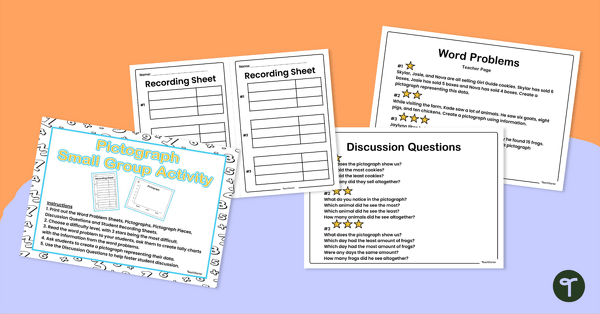
Create a Pictograph - Small Group Activity
Introduce the concept of a pictograph, and teach students how to create simple pictographs based on data from in a word problems.
- Plus Plan
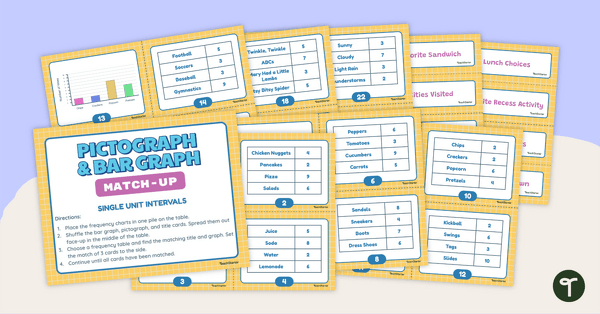
Pictograph and Bar Graph Match-Up (Single-Unit Intervals)
Use data analysis skills to match frequency tables with a corresponding bar graph or pictograph.
- Plus Plan
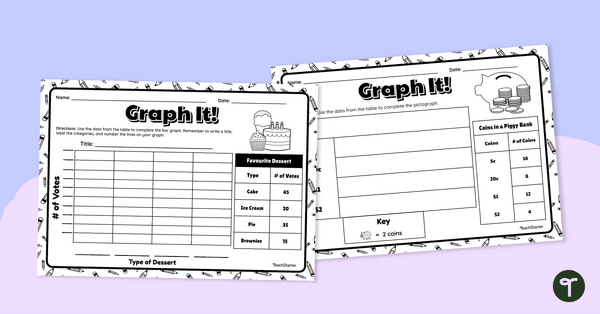
Graph It! Worksheet (Many-to-One Graphs)
Draw a scaled picture graph and bar graph to represent data with this worksheet.
- Plus Plan
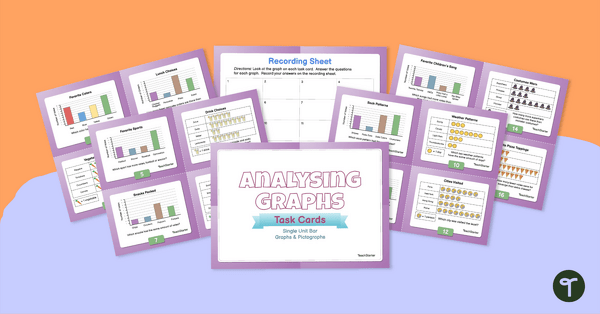
Analysing Graphs – Single-Unit Bar Graphs and Pictographs – Task Cards
Use data analysis skills to analyse bar graphs and pictographs with this set of task cards.
- Plus Plan
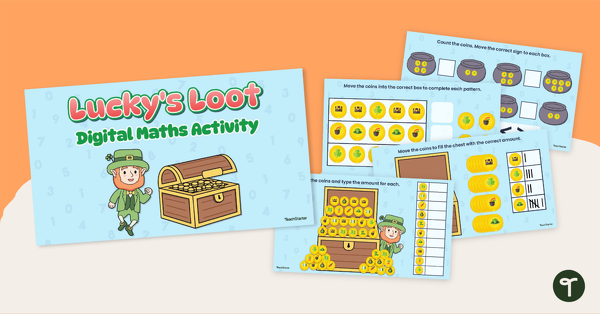
St Patrick's Day Digital Maths Activity
Celebrate St Patrick’s Day with a spot of Maths fun!